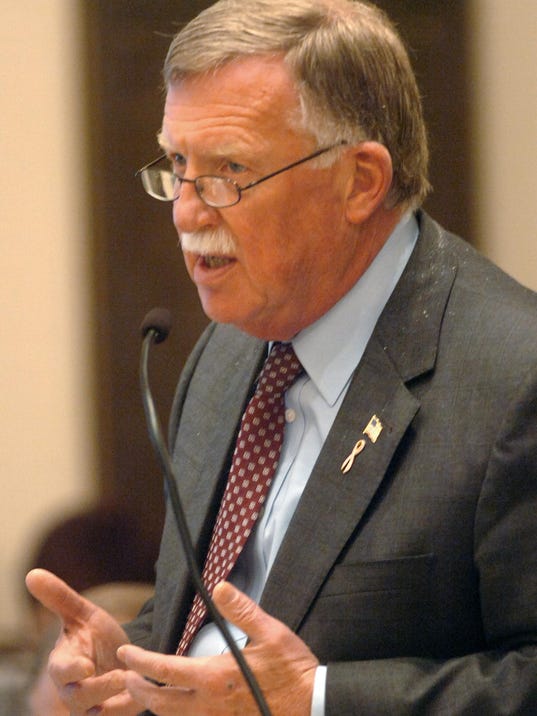The hunt to find $9.9 million to bail out the state’s casinos has so far honed in on one potential source: unused funds associated with the Kent County Sports Complex.
The money, just over $3 million, was pledged last year for the project from the Delaware Economic Development Office’s job infrastructure fund.
The Kent County Sports Complex project is currently at a standstill and would not use the money in the coming year. The money would be loaned to the general fund with the state returning the funds next year.
The complex will feature 10 grass athletic fields, four outdoor artificial turf fields and a 36,000-square-foot building housing an indoor track and field, all on 100 acres. The parcel is adjacent to the county’s wastewater-treatment plant, on the east side of Del. 1 at the junction with Milford Neck Road.
Construction was scheduled to begin this year, but the building process has been slowed by the need for a new elevated Del. 1 interchange still being planned by the cash-strapped Delaware Department of Transportation.
The infrastructure fund, established in 2012, provides assistance for renovation, construction, or other improvements to roads, utilities and infrastructure to attract new businesses to the state.
It can also be used for the expansion of existing state businesses to create jobs, according to the fund’s guidelines.
The sports complex money would represent one of several pots of money officials are considering to piece together enough to keep the state’s three ailing casinos afloat as they seek a longer term fix.
It’s still unclear where the rest of the money would come from and nothing is official yet.
The casino bailout bill, sponsored by Sen. Brian Bushweller, a Dover Democrat, originally called for a bailout of $9.9 million in the first year and $20 million in each subsequent year. Lawmakers are expected to amend the bill, keeping the yearly cost at $9.9 million.
Bushweller did not return a call seeking comment Friday.
Senate President Patricia Blevins said she backs amended legislation that would eliminate the second year of funding. When the bill was first introduced, there was little appetite to provide the second-year of aid, which would come from eliminating table game fees and reducing the state’s share of table game revenues, she said.
The state has relied on casino revenue for its budget and needs to do what it can to keep them above water, Blevins said.
“The bill is necessary to ensure for now that casinos can continue to operate in the way they do and provide the revenue we depend on,” she said. “This is only a first step, though.”
The tax rate still needs to be adjusted, but that’s another matter for next year, she added.
Gov. Jack Markell said in a statement that he wants to see the state reduce its reliance on gaming revenue and put casinos in a position where they can be competitive and good partners.
“The proposals by the gaming commission and Bushweller’s bill represent a lot of hard work to move us in that direction,” the statement said. “The challenge at this point is that there are only a few days left and the bill has to be paid for.’
Where the measure may face difficulty is in the House.
Speaker of the House Peter Schwartzkopf, a Rehoboth Democrat, said he doesn’t think the casino legislation would pass as currently written. A lot of the concern over the bill deals with the second year of funding, he said.
“It depends on what comes out of the Senate,” he said. “I don’t think a two-year deal will fly.”
Contact Jon Offredo at (302) 678-4271 or at This e-mail address is being protected from spambots. You need JavaScript enabled to view it or on Twitter @jonoffredo.
Read or Share this story: http://delonline.us/T0r0je
| < Prev | Next > |
|---|







 Copyright © 2025 ToCasino.net Online Casino. All Rights Reserved. Designed by
Copyright © 2025 ToCasino.net Online Casino. All Rights Reserved. Designed by